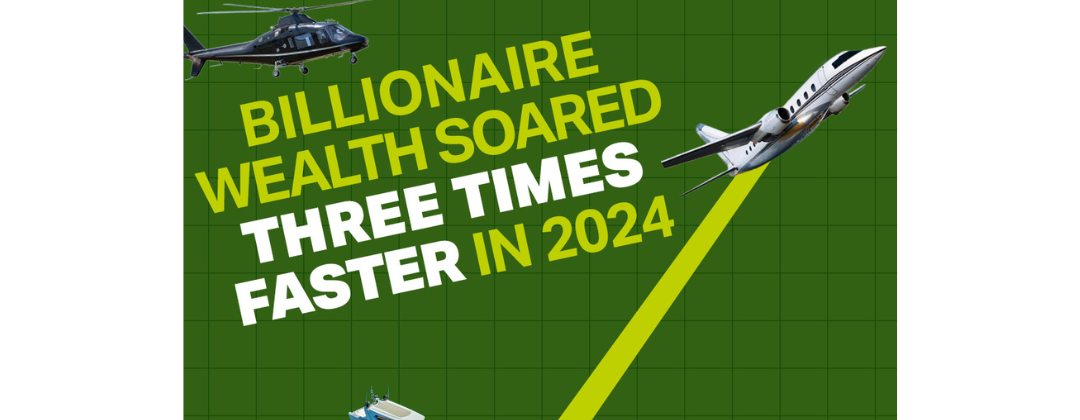As business elites gather in the Swiss resort of Davos and Donald Trump is inaugurated as US President, Oxfam’s latest global report, Takers Not Makers, reveals a shocking rise in billionaire wealth. In the UK alone, billionaire wealth increased by £35 million ($44m) a day.
Most billionaire wealth is taken, not made: 60 percent now comes from inheritance, monopoly power or crony connections.
A year ago, Oxfam predicted the world was on course for its first trillionaire within a decade. Now, if current trends continue, there will be at least five.
But what of everyone else?
Our extractive global economy may be working for billionaires, but not for the billions of people living in poverty around the world, nor the one in five people in poverty in Scotland.
Breaking this dangerous cycle of more billionaire wealth, widening inequality, and deepening poverty will require a fundamental shift in imagination from governments.
Scotland’s own story isn’t one of extreme billionaire wealth, but it’s still one of growing disparity.
Income inequality is high and rising, with wealth inequality even deeper: our wealthiest 10% of households have, on average, 217 times more wealth than the poorest 10%.
Last week, the First Minister urged us to “imagine a Scotland where no child lives in poverty” but admitted that a wealthier Scotland will count for little if that wealth isn’t better shared.
A more equal Scotland is possible but will remain a fantasy without action to deliver it.
That’s why as part of Tax Justice Scotland, a campaign backed by more than 50 organisations, Oxfam Scotland is calling for the Scottish and UK Governments to deliver a tax system that helps to deliver a greener, fairer, more equal Scotland.
Fair tax reforms will benefit us all: helping narrow the divide and raise vital resources to invest in poverty-reducing public services and social security, while tackling the climate crisis.
That’s why many millionaires already support a small one to two per cent wealth tax on assets over £10 million, a measure that could contribute up to £22 billion to the UK Treasury annually.
But of course, reforms like these must sit alongside broader efforts to make our economy fairer and greener, while also ensuring smarter public spending.
In Scotland, Income Tax has been made a little fairer, but there’s work still to do.
The Scottish Government’s new Tax Strategy commits to “explore” wealth taxation but offers few concrete grounds for near-term optimism. The broken record on replacing the discredited Council Tax with a fairer tax on property wealth also keeps on playing.
Meanwhile, obvious immediate steps, like landing a fair tax on the pollution-spewing private jets of the ultra-wealthy soaring high through Scottish skies, remain grounded.
The choice is clear: continue to prop up a system that favours the few, or fight for a future where everyone can thrive. Ministers must choose progress, not privilege.
This article originally appeared in The Herald.



